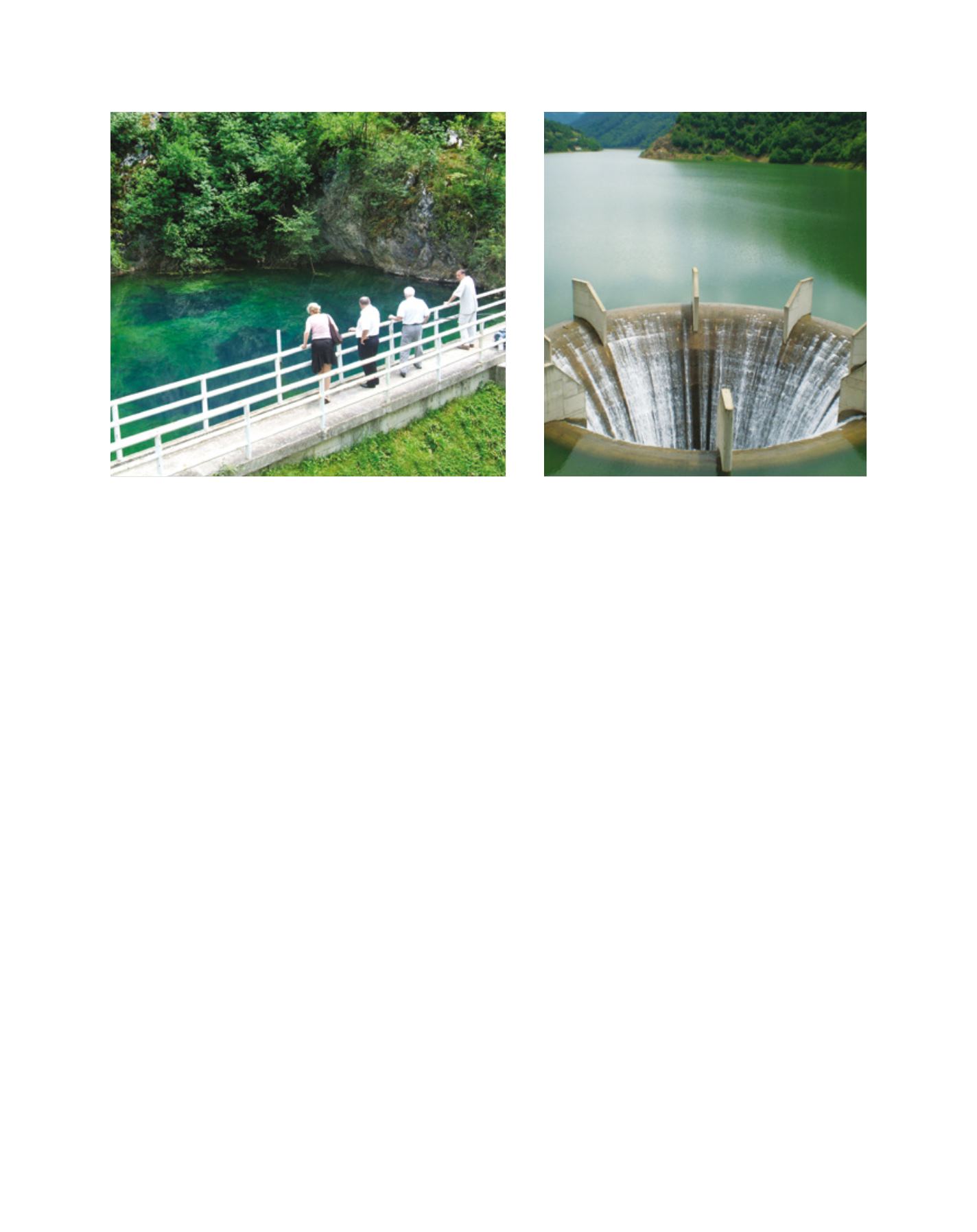

[
] 320
I
nternational
C
ooperation
on
W
ater
S
ciences
and
R
esearch
The main activities of the centre include networking
in water management knowledge dissemination, with
a focus on capacity building and problem solving in
economic transition countries and taking into account
climate change and socioeconomic transformation. The
centre provides highly-specialized human resources and
management capacity building, and assists in the devel-
opment of baseline studies and water management plans.
Expected benefits
Several benefits are expected from the outcomes of the
centre’s activities. At the country level, these include
management capacity building at centralized and
municipal institutions in charge of water management
and the establishment of closer ties with scientific and
professional organizations, both from countries within
the region and beyond. The integration and enhance-
ment of water management capacities and knowledge,
and assistance in the development of studies and master
plans, are also key benefits expected at this level.
At the regional level, the centre will enable the networking
of institutions and all resources involved in water manage-
ment development and climate change programmes. These
activities include study and awareness raising about the
impact of economic transition and climate change on water
management, and capacity building.
Under UNESCO-IHP, the centre will enable advances
in capacity building and networking. Activities will be
aimed at identifying the impact of climate change on
water resources, and raising awareness of the issues
of transition countries and the impact of such issues
on water management. The centre will also focus on
improving north-south water management coopera-
tion in circumstances involving socioeconomic and
climate changes.
summary, major efforts need to be made during the next 15-20 years
to harmonize Serbia’s water sector arrangements with European
Union requirements, and at the same time achieve a water status
which reflects legitimate societal needs.
JCI actively monitors developments in the international arena and
has established close ties with a number of international institutions.
International cooperation
Special emphasis is placed on the following activities:
• collaboration with international associations such as the
International Water Association (IWA) and the International
Association of Water Supply Companies in the Danube River
Catchment Area (IAWD)
• cooperation with international commissions including the
International Commission for the Protection of the Danube
River (ICPDR) and the International Sava River Basin
Commission (Sava Commission)
• participation in international projects (FP, SEE etc)
• organization and hosting of international conferences:
• Groundwater Management in Large River Basins (2007)
• Planning and Management of Water Resources Systems (2008)
• Balkans Regional Young Water Professionals Conference (2010)
• IWA Specialist Groundwater Conference (2011).
JCI has made and continues to make significant scientific contribu-
tions. For example, it is actively involved in long-term research on
the ageing of wells and other groundwater abstraction facilities, in
relation to the aerobic state of the aquifer.
UNESCO Category II Centre
In order to satisfy Serbia’s water sector need, and to facilitate
networking and capacity building at the regional and international
levels, in 2012 UNESCO approved the opening of its new Category
II Centre for Water for Sustainable Development and Adaptation to
Climate Change at JCI. The centre has been operational since 2013.
The Krupac Water Spring in Eastern Serbia
A spillway on the Prvonek Dam in Southern Serbia
Image: JCI
Image: JCI


















